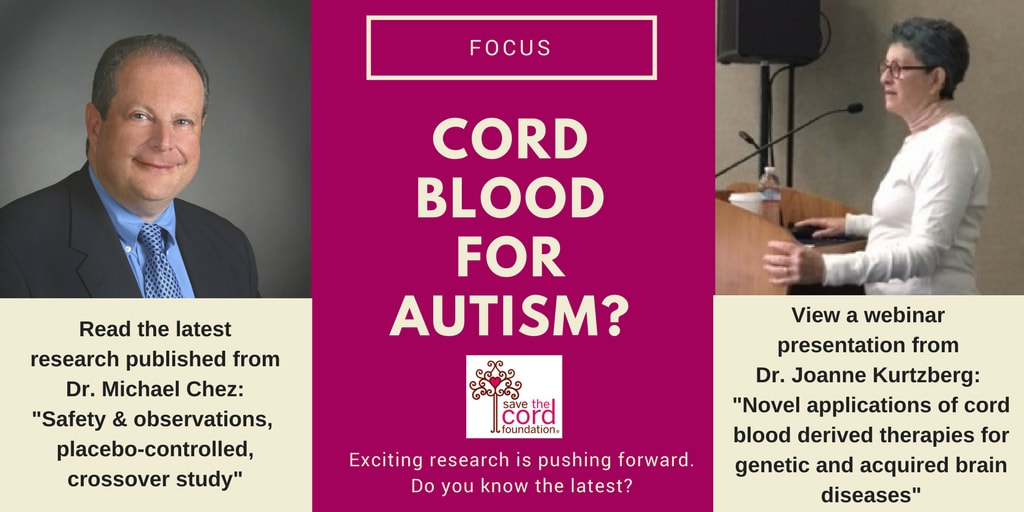|
"Promise" This is the key word when discussing the latest research using cord blood to potentially treat autism. Scientists have made tremendous gains in this area of medicine; however, we are far from definitive answers regarding a treatment for autism. In this hunt for a viable treatment, it would seem that cord blood is critical.
Solving the autism riddle has become urgent and critical as experts have suggested that the number of cases has increased significantly in recent years. In 2016, the Center for Disease Control - Autism and Developmental Disabilities Monitoring (ADDM) Network estimated that autism was diagnosed in 1 of every 68 births. They broke down the statistics further stating that this was a significant increase over the previous report from 2004 when it was estimated that autism was diagnosed in 1 of 125 births. You can read more about the CDC's findings here. These statistics are important as they highlight the urgency of the situation and the critical need for a viable treatment that can be used across a wide range of populations. A "promise" in research at this point is thus very encouraging and merits further exploration. Although there are still many questions regarding using cord blood to treat autism, we are excited to see new research from various angles being brought forth with enthusiasm. Most recently, Dr. Michael Chez of the Sutter Institute for Medical Research published his long-awaited results from a placebo-controlled, crossover study analyzing the use of cord blood to potentially treat autism. This study was significant because it was the first randomized, double-blinded, placebo-controlled trial performed in the United States to assess the feasibility of treating autistic children by using their own newborn cord blood harvested from their banked umbilical cord. In addition to confirming the safety of using cord blood, the results of the study indicated improvements in socialization and language using the Vineland Adaptive Behavior Scale for Socialization. According to Dr. Chez, patients "showed significant improvement after 12 weeks of cord blood treatment over placebo."
A discussion on cord blood research for autism would not be complete without mentioning the work of Dr. Joanne Kurtzberg from the Duke Center for Autism and Brain Development, Department of Pediatrics and Carolinas Cord Blood Bank. We highly recommend that all of our readers take a moment to watch a presentation made by Dr. Kurtzberg at a live Share the Science event during the AABB conference last year (watch a webinar of this presentation here). Dr. Kurtzberg is well known for her research using cord blood to potentially treat autism, cerebral palsy and other genetic and/or acquired brain diseases. Her presentation provides a great overview of her own work and gives the listener greater perspective on where the research is going next.
As research continues, we know that there are many questions. There need to be questions. Cord blood is not a cure-all; however, it is clear that it has huge potential in regenerative medicine (for autism, cerebral palsy and more) in addition to 80+ current uses, namely for blood cancers. We are encouraged that cord blood shows promise in treating autism as is evident from both Dr. Kurtzberg's and Dr. Chez's work. We look forward to seeing the next phase of progress in this fascinating area of autism research and regenerative medicine. |
AuthorWrite something about yourself. No need to be fancy, just an overview. Archives
June 2024
Categories |


 RSS Feed
RSS Feed


